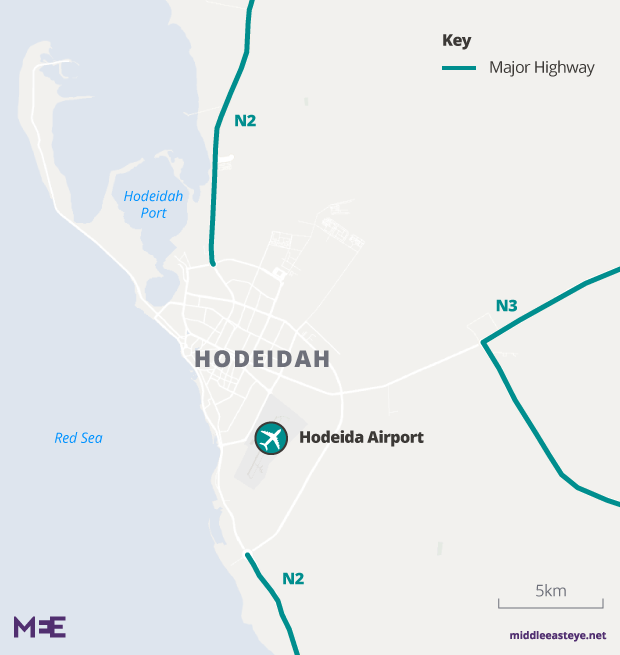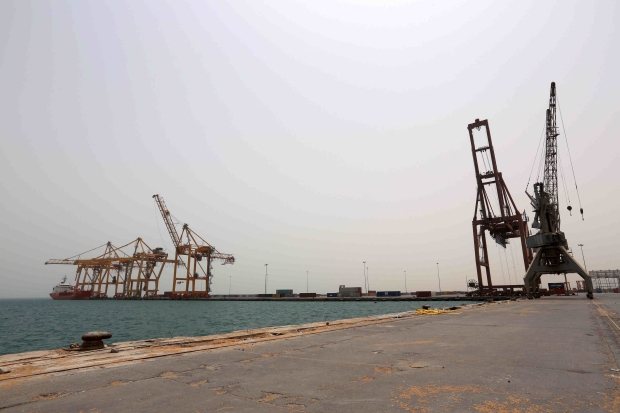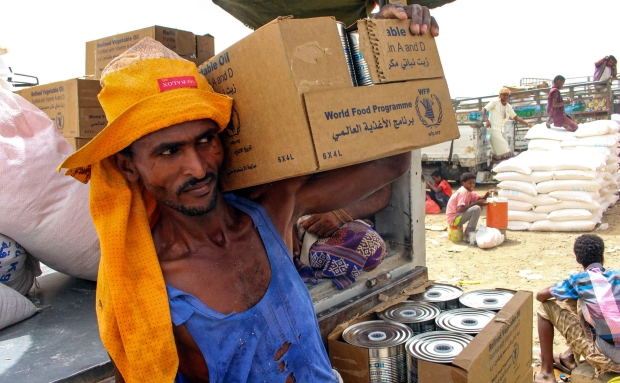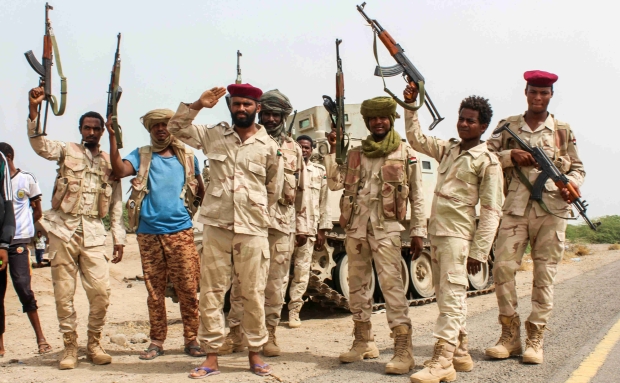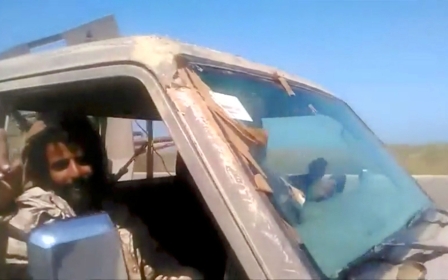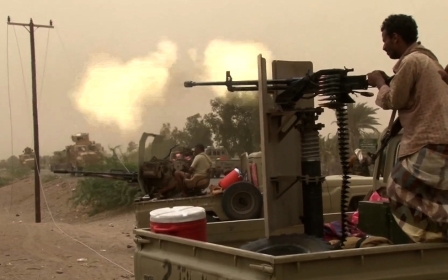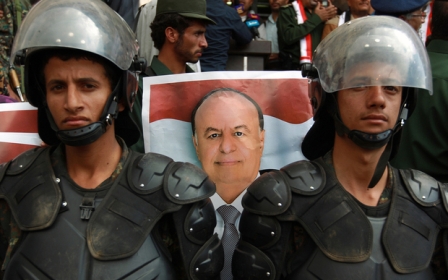In Yemen’s Hodeidah, Houthis dig in for protracted street fighting
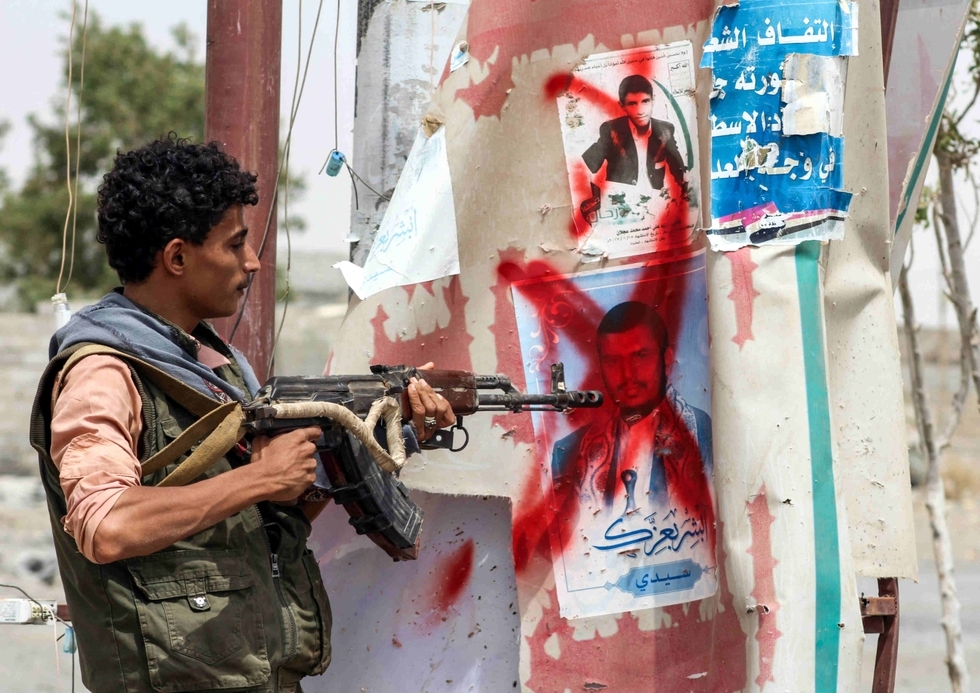
TAIZ, Yemen - The airport is lost, pro-Yemeni government forces are advancing up towards the port and warplanes bombard their positions – yet the Houthi rebels defending Hodeidah show no signs of relinquishing control of the strategic city.
Instead the rebels are digging in, carving out trenches to shield themselves from bombardment and placing snipers at the top of the city’s highest buildings.
Meanwhile roadblocks have been set up on the roads heading into Hodeidah and mines are being scattered across the city’s outskirts, which the Houthis hope will delay the enemy’s advance, but also risks trapping civilians in the fray.
It is a situation that points towards one thing – Hodeidah is likely to be the scene of pitched street battles, a scenario dreaded by the city’s residents and international aid groups.
Preparing for the worst
According to Farouq, a resident of Hodeidah who wished to be identified by his first name only for security reasons, the Houthis have closed all roads that lead from the city to the airport and surrounding areas.
He said the Houthis have spread out from the checkpoints they once manned in the city to the areas between Hodeidah and its airport, which was captured by the Saudi-led coalition forces backing the Yemeni government on Wednesday.
"They closed the roads that lead to the surrounding areas of the airport, so people of those areas can leave their houses but cannot return," Farouq told Middle East Eye.
Soon after the assault began, Farouq visited the Kilo 16 road near the airport to receive a family that had fled from the Al-Noukhaila area 14 km south of the city. There he saw the Houthis preparing for the oncoming assault.
'The Houthis are preparing for a street war, and that is why we see them prepare for the battle in the peaceful areas beyond the airport'
- Farouk, Hodeidah resident
"The Houthis have dug trenches, set up barricades, closed the roads. Many checkpoints are spread down the road towards the airport, and there are some snipers spread in high buildings in peaceful areas," he said.
"The Houthis are preparing for a street war, and that is why we see them prepare for the battle in the peaceful areas beyond the airport."
Hundreds of families have already fled their houses in the areas surrounding the airport and more families are fleeing every day because the battle is moving towards the city, he said.Another resident, Aidarous, said the Houthis are requisitioning the tallest buildings to turn them into snipers’ nests.
"No one can oppose the Houthis, so when they storm any building, immediately the dwellers leave the building towards safe areas," Aidarous told MEE.
He said the Houthis have been sending military reinforcements from different provinces in the north of Yemen, adding that the rebels seem to be willing to fight any battles inside the city.
Next stop: the port
The Hodeidah offensive, which the coalition has dubbed “Operation Golden Victory”, is being conducted by various Yemeni factions on the ground, led by Tareq Saleh, nephew of late former president Ali Abdullah Saleh.
They are backed by Emirati troops and Saudi and UAE warplanes, Apache helicopters and battleships.
Since announcing the offensive on 13 June, the coalition has made progress by capturing the sprawling airport compound, which served as a Houthi military base rather than as an airstrip in recent years, after one week’s fighting
Yet Ibrahim al-Siragi, a pro-Houthi political analyst, sees no real value in the airport’s capture.
"There is no strategic importance to the airport and only the aggressor [the Saudi-led coalition] is talking about the importance of the airport, to tell its supporters that it was able to achieve a major advance,” he told MEE.
The port is a different matter entirely, however.
Just 8km from the airport, Hodiedah’s port is the main conduit for food, medical and commercial supplies coming into the country and a site of key strategic importance.
Not only a lifeline for a country suffering from what the UN calls the world’s worst humanitarian crisis – 22 million people require food aid – the facility is a major resource for the Houthi rebels.
Though this is an accusation the Houthis deny, losing the port would mean losing other kinds of supplies too, such as the revenues it gains through duties.
Fadhl al-Robie, the head of Madar Strategic Studies Center, a think tank based in Aden, believes that the Houthis will exert all efforts to stop the pro-Hadi forces from taking it.
'They will resort to any kind of fighting to defend Hodeidah, even street battles'
- Fadhl al-Robie, head of Madar Strategic Studies Center
"Hodeidah seaport is the main port for the Houthis and they are not willing to withdraw peacefully, so they will resort to any kind of fighting to defend Hodeidah, even street battles," he told MEE.
The coalition has said it hopes the United Nations through its special envoy to Yemen, Martin Griffiths, will encourage the Houthis to pull out before fighting erupts within the port and city themselves.
However, despite a three-day visit to Sanaa early last week, Griffiths has made no recognisable headway with the assault closing in.
In fact, with international aid groups warning that hundreds of thousands could be at risk if aid can no longer enter through the port, water sources are cut and civilians are caught up in the crossfire, backing for the assault has proved hard to come by for the Saudi-led coalition.
As MEE reported previously, the United Arab Emirates failed in its attempts to get the United States publicly on side, and forced Hadi against his will to back the operation.
"The aggressor can choose if street fighting breaks out in Hodeidah city or not, but Ansar Allah [the Houthis] is not responsible for this war because they are defenders and not invaders," Siragi said.
"The Yemeni army and Popular Committees [the Houthis] will not withdraw from Hodeidah, whatever it costs," he added.
Treading carefully
According to Yasseen Noaman, a pro-government fighter in the Golden Victory forces, the coalition is treading carefully as it approaches Hodeidah.
He said the pro-government troops are well aware of the measures being taken by the Houthis, and are currently picking their way through a number of booby traps laid by the rebels.
"The Houthis have heavily planted landmines to hinder the advance of the forces but we have minesweepers and professional teams to sweep the landmines," he told MEE.
After the Houthis took over Aden in 2015, the pro-Hadi forces backed by the Saudi-led coalition launched an attack on the city to take it back.
The battle lasted some two months, with bitter protracted street-to-street fighting that left hundreds dead and caused widespread destruction.
'The Houthis have already used civilians as shields in several battles, so we expect that they will use them this time too'
- Yasseen Noaman, a pro-government fighter
"We are doing our best to avoid targeting civilians and this is a main reason for the slow advance, but we hope that the Houthis will not use civilians as human shields," Noaman said.
"The Houthis have already used civilians as shields in several battles, so we expect that they will use them this time too,” he added.
“In all conditions we will not stop our advance towards Hodeidah, but we hope that the Houthis will withdraw peacefully from the city."
New MEE newsletter: Jerusalem Dispatch
Sign up to get the latest insights and analysis on Israel-Palestine, alongside Turkey Unpacked and other MEE newsletters
Middle East Eye delivers independent and unrivalled coverage and analysis of the Middle East, North Africa and beyond. To learn more about republishing this content and the associated fees, please fill out this form. More about MEE can be found here.


